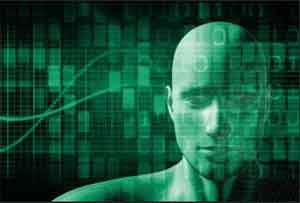- Home
- Editorial
- News
- Practice Guidelines
- Anesthesiology Guidelines
- Cancer Guidelines
- Cardiac Sciences Guidelines
- Critical Care Guidelines
- Dentistry Guidelines
- Dermatology Guidelines
- Diabetes and Endo Guidelines
- Diagnostics Guidelines
- ENT Guidelines
- Featured Practice Guidelines
- Gastroenterology Guidelines
- Geriatrics Guidelines
- Medicine Guidelines
- Nephrology Guidelines
- Neurosciences Guidelines
- Obs and Gynae Guidelines
- Ophthalmology Guidelines
- Orthopaedics Guidelines
- Paediatrics Guidelines
- Psychiatry Guidelines
- Pulmonology Guidelines
- Radiology Guidelines
- Surgery Guidelines
- Urology Guidelines
Memory improved with electrical stimulation

Neuroscientists at the David Geffen School of Medicine at UCLA have discovered precisely where and how to electrically stimulate the human brain to enhance people's recollection of distinct memories. People with epilepsy who received low-current electrical pulses showed a significant improvement in their ability to recognize specific faces and ignore similar ones.
Eight of nine patients' ability to recognize the faces of specific people improved after receiving electrical pulses to the right side of the brain's entorhinal area, which is critical to learning and memory. However, electrical stimulation delivered to the left side of the region, tested on four other people, resulted in no improvement in the patient's recall.
The study builds on 2012 UCLA research published in the New England Journal of Medicine demonstrating that human memory can be strengthened by electrically stimulating the brain's entorhinal cortex.
The researchers followed 13 people with epilepsy who had ultrafine wires implanted in their brains to pinpoint the origin of their seizures. The team monitored the wires to record neuron activity as memories were formed, then sent a specific pattern of quick pulses back into the entorhinal area.
Using the ultrafine wires allowed researchers to precisely target the stimulation but use a voltage as low as one-tenth to one-fifth as strong as had been used in previous studies.
The study suggests that even low currents of electricity can affect the brain circuits that control memory and human learning. It also illustrates the importance of precisely targeting the stimulation to the right entorhinal region. Other studies that applied stimulation over a wide swath of brain tissue have produce conflicting results.
Electrical stimulation could offer promise for treating memory disorders like Alzheimer's disease.
The study was led by Dr. Itzhak Fried and Nanthia Suthana of the UCLA departments of neurosurgery and psychiatry, in collaboration with Emily Mankin, Ali Titiz, Zahra Aghajan, Dawn Eliashiv, Natalia Tchemodanov, Uri Maoz, John Stern, Michelle Tran, Peter Schuette and Eric Behnke, all of UCLA; and Michael Hill of UCLA and Caltech.
The study was published in the open-access, peer-reviewed journal eLife.
The study was funded by the National Institute of Neurological Disorders and Stroke, the A.P. Giannini Foundation, the Defense Advanced Research Projects Agency, the G. Harold and Leila Y. Mathers Charitable Foundation and the Swiss National Science Foundation.

Disclaimer: This site is primarily intended for healthcare professionals. Any content/information on this website does not replace the advice of medical and/or health professionals and should not be construed as medical/diagnostic advice/endorsement or prescription. Use of this site is subject to our terms of use, privacy policy, advertisement policy. © 2020 Minerva Medical Treatment Pvt Ltd